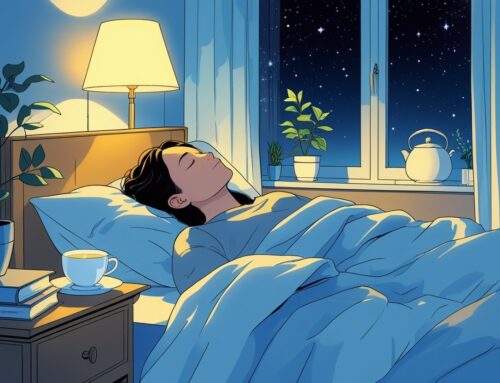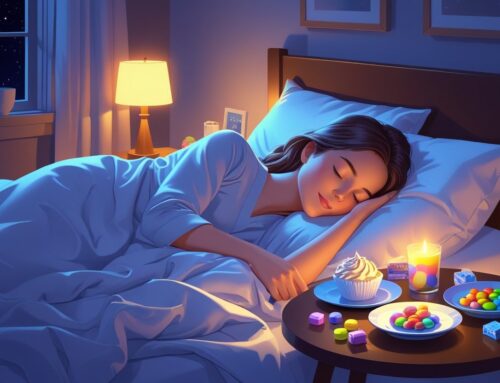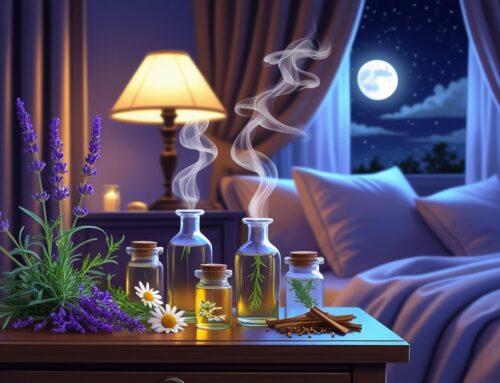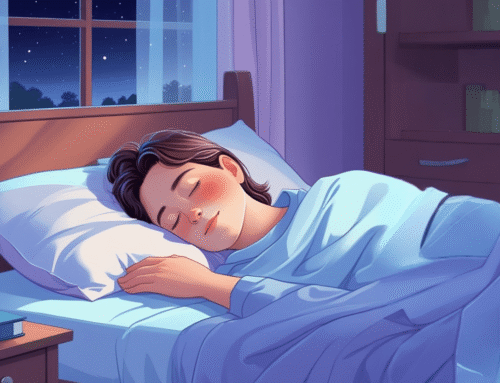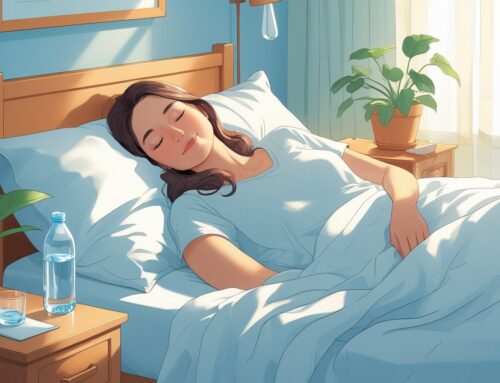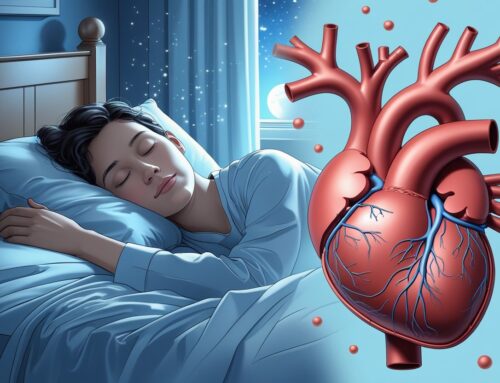There is a strong connection between sleep and testosterone. When you get enough sleep, your body can keep testosterone levels in a healthy range. Most of the testosterone your body makes happens during sleep, especially in the first few hours. If you don’t get enough rest, your body may produce less, which can affect your mood, energy, and overall health.
Poor or broken sleep can lower testosterone. And low testosterone can also make sleep worse, creating a cycle that’s hard to break. Sleep problems like shift work or sleep apnea can also affect hormone levels without you realizing it.
Knowing how sleep and testosterone affect each other shows why both are important for men’s health. In this article, we’ll look at how they connect, what factors influence this relationship, and what can help improve both through lifestyle changes or medical care.
Key Takeaways
- Adequate and uninterrupted sleep supports healthy testosterone production.
- Sleep problems and hormone imbalances often affect each other.
- Lifestyle changes can improve sleep and help maintain testosterone levels.
- A supportive mattress that maintains spinal alignment and reduces discomfort fosters deeper and uninterrupted sleep, which is essential to natural testosterone production and overall hormone balance.
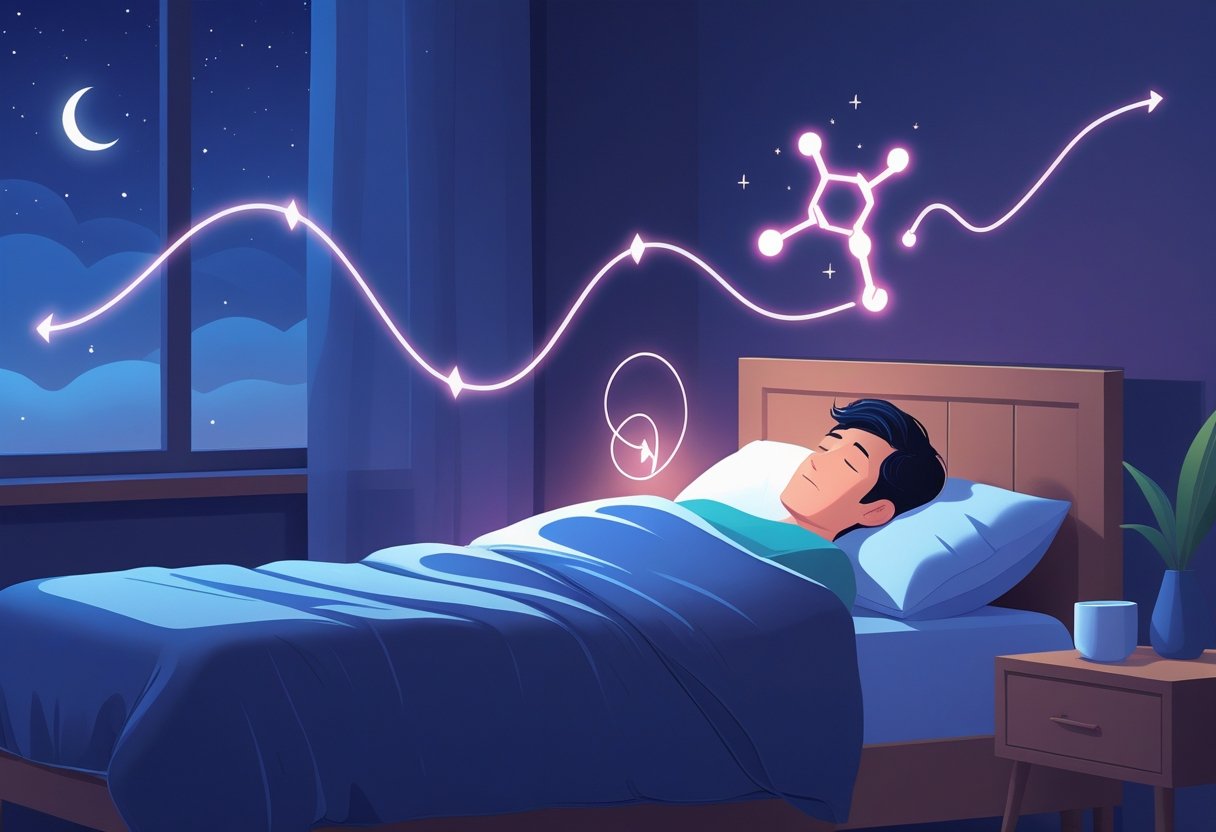
The Biological Link Between Sleep and Testosterone
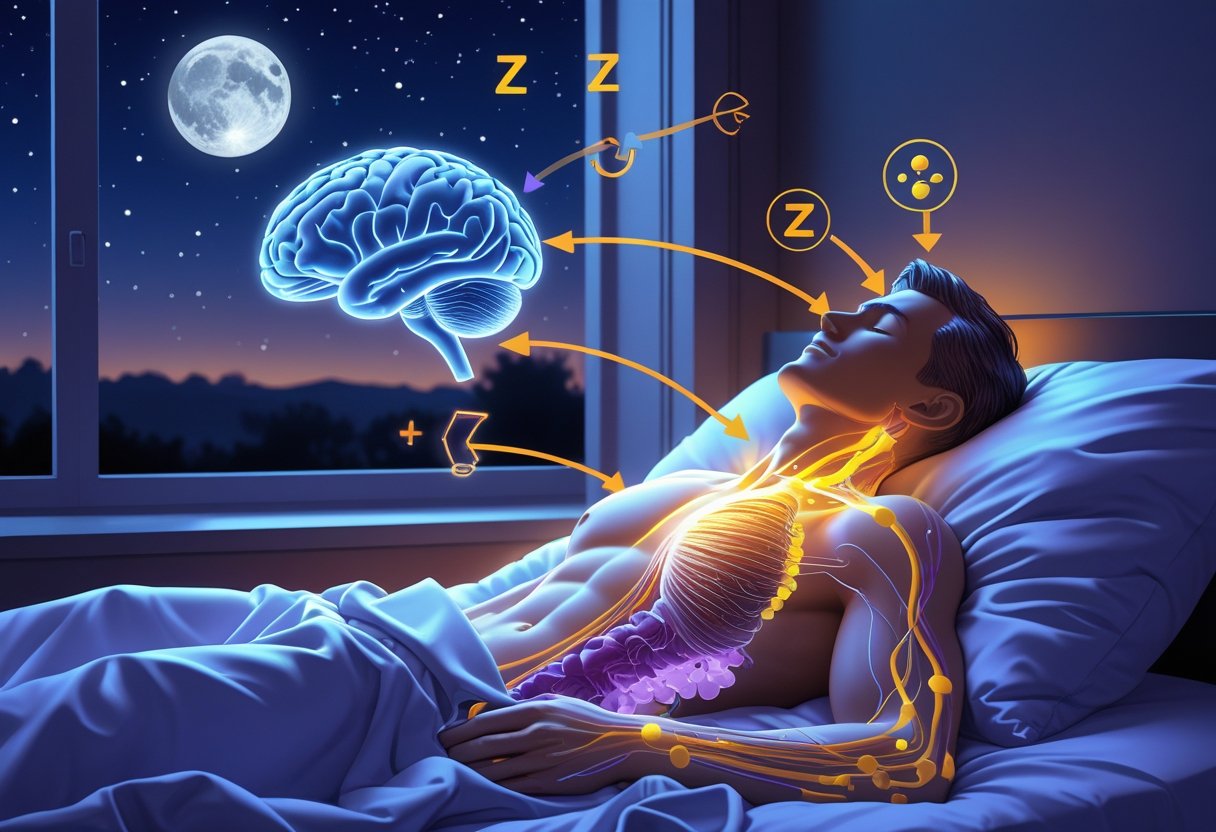
Testosterone levels change with the sleep cycle. They closely connect to specific sleep phases and the body’s internal clock. The body produces testosterone during uninterrupted sleep, and testosterone also influences sleep quality. Hormonal balance depends on circadian rhythms, which regulate both sleep and testosterone release.
How Testosterone Is Produced During Sleep
When you fall asleep, your body starts making more testosterone. The highest point usually happens during the first REM stage, which comes in the first few hours of sleep. To reach and keep that peak, you need at least three hours of sleep without waking up.
If your sleep is broken or the quality is poor, this rise gets interrupted. Testosterone is released in pulses about every 90 minutes, following the rhythm of another hormone called luteinizing hormone. This is why both the length and the flow of sleep are important. Not getting enough sleep or waking up too often lowers testosterone, which can affect muscle growth, energy, and sex drive.
Testosterone’s Role in Sleep Regulation
Testosterone not only increases due to sleep but also impacts sleep quality. Low testosterone levels often lead to less deep sleep and more frequent awakenings. Men with low testosterone may have worse sleep efficiency and less slow wave sleep, which is crucial for physical recovery.
Normal testosterone levels support sleep stability and help maintain the necessary phases for restorative rest. High or misused testosterone doses can disrupt this balance, resulting in insomnia or fragmented sleep patterns. This shows a two-way relationship: testosterone depends on sleep and also shapes sleep quality.
Circadian Rhythms and Hormonal Balance
Testosterone and sleep follow circadian rhythms, which are biological cycles lasting about 24 hours. Testosterone levels naturally follow this daily pattern, rising during sleep and falling while awake. This cycle aligns with hormone pulses that occur roughly every 90 minutes.
Sleep timing is essential. When normal cycles are disrupted, such as in shift work, testosterone levels may drop due to disturbed sleep architecture rather than the time of day alone. The body requires consistent cycles of sleep and wakefulness to keep hormones balanced. Disruptions in circadian rhythms often lead to hormonal imbalance and decreased testosterone production.
How Sleep Quality and Duration Impact Testosterone
Testosterone levels are significantly affected by how long and how well a person sleeps. Short sleep and poor sleep quality both lead to lower testosterone production. The timing and structure of sleep are also crucial for hormone regulation.
Acute and Chronic Sleep Deprivation Effects
Even one bad night of sleep can affect hormones. Studies show that missing out on proper rest can lower morning testosterone levels by about 10 to 15 percent.
When poor sleep becomes a pattern, the impact is even stronger. Regularly getting less than six hours of sleep is linked to lower testosterone over time. The drop is usually more noticeable in older adults compared to younger ones. Most of this happens because the body releases important hormone signals in the first few hours of sleep. If you stay awake too long or cut your rest short, those signals get disrupted. Lower testosterone can then affect energy, mood, and muscle strength.
Optimal Sleep Duration for Hormonal Health
Most people need seven to eight hours of good sleep to keep testosterone levels normal. The body produces the most testosterone in the first few hours of sleep, especially during deep sleep. If you often sleep less than six and a half hours, your risk of having low testosterone goes up. On the other hand, sleeping longer and more consistently helps boost testosterone, especially when your sleep is not broken up.
Simple changes in your routine can make a difference. Going to bed at the same time each night and avoiding sleep disruptions can help your body stay in balance.
Sleep Stages and Testosterone Secretion
Testosterone levels go up while you sleep. The biggest boost happens during deep sleep and in the first phase of REM sleep. Most of the increase takes place in the first three to four hours of solid rest. If your sleep is broken or cut short, these hormone rises get disrupted. That means your overall testosterone may end up lower. As people get older, they spend less time in deep sleep. This is one reason testosterone often drops with age.
Studies show that both deep sleep and REM sleep matter for testosterone. Getting enough hours and good quality rest is key to keeping hormone levels healthy.
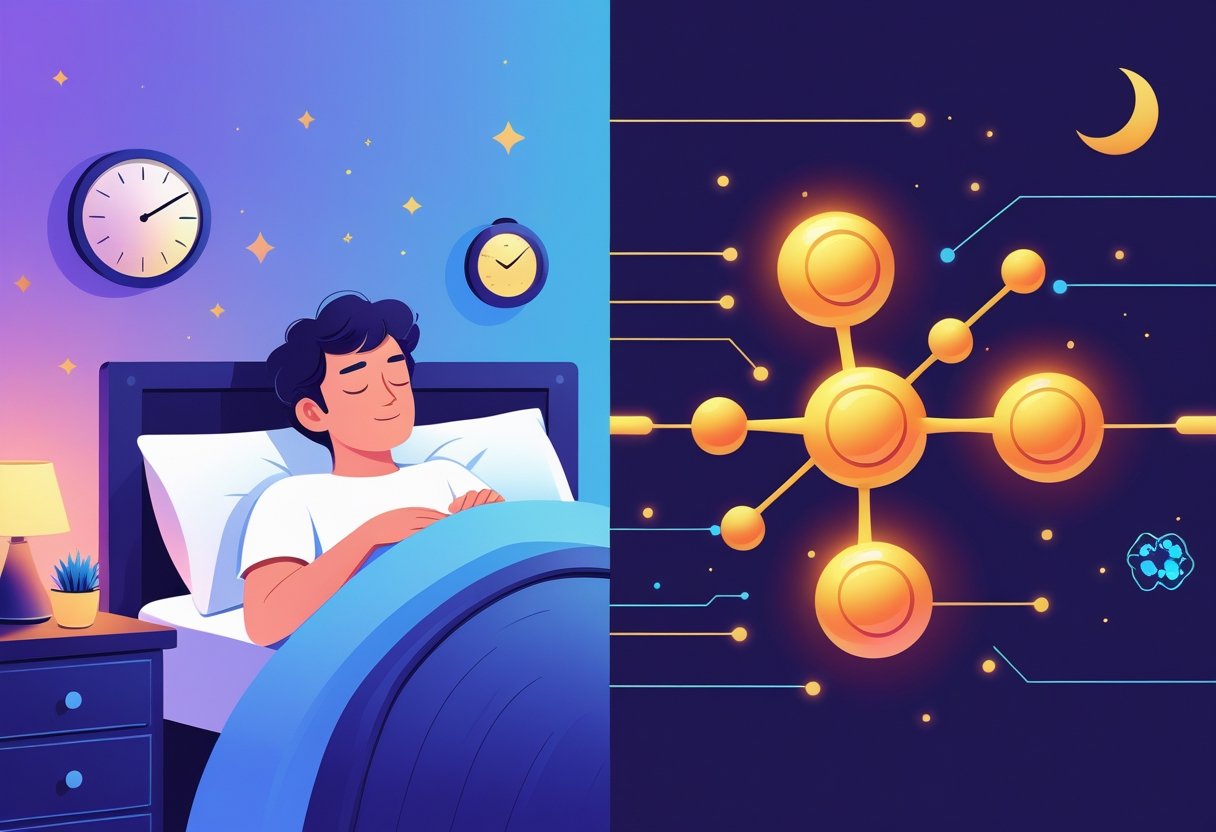
Low Testosterone and Sleep Disorders
Low testosterone can lead to several problems that affect how well a person sleeps. It often causes changes in sleep quality and can increase the chance of sleep disorders. Understanding these effects helps identify ways to improve both hormone levels and sleep health.
Sleep Disturbances Associated with Low Testosterone
Men with low testosterone often struggle with sleep. They wake up more during the night and spend less time in deep sleep, the stage where the body recovers and restores energy. Without enough of this deep rest, they may feel more tired during the day and find it harder to focus.
Low testosterone can also make men feel sleepy in the daytime and lower the overall quality of their sleep. Research shows that hormone therapy can sometimes improve sleep by helping bring back normal sleep patterns. But too much testosterone can have the opposite effect, leading to shorter sleep and more frequent interruptions. This shows how closely testosterone and sleep are connected. For men with low levels, it can play a big role in how well they rest at night.
Insomnia and Nocturia in Low Testosterone
Insomnia is common among men with low testosterone. Difficulty falling or staying asleep may be linked to hormonal imbalances that disrupt the body’s normal sleep cycles. Men with low testosterone often report trouble maintaining sleep, leading to frequent nighttime awakenings.
Nocturia, or waking up multiple times to urinate at night, also affects sleep for those with low testosterone. This condition interrupts sleep cycles and reduces total sleep time, adding to daytime tiredness. Low testosterone may worsen nocturia by affecting bladder function and hormone regulation during sleep.
Addressing low testosterone can sometimes reduce these symptoms. Treatment focused on hormone balance and managing nocturia may improve overall sleep quality.
Causes and Risk Factors for Low Testosterone
Testosterone levels can drop for many reasons. Aging is one of the main causes. As men get older, the body makes less testosterone, and this can affect sleep. Health problems like obesity, sleep apnea, and other long-term illnesses can also lower hormone levels. Daily habits play a role too. Poor diet, little exercise, high stress, and irregular sleep schedules can all make things worse. Even shift work can affect the body’s clock and reduce testosterone over time.
Knowing what causes low testosterone makes it easier to address. Small changes like losing weight, eating better, and keeping a regular sleep routine often help bring levels back up. But when these steps are not enough, a doctor may suggest tests or treatment. In some cases, hormone therapy is used to restore balance.
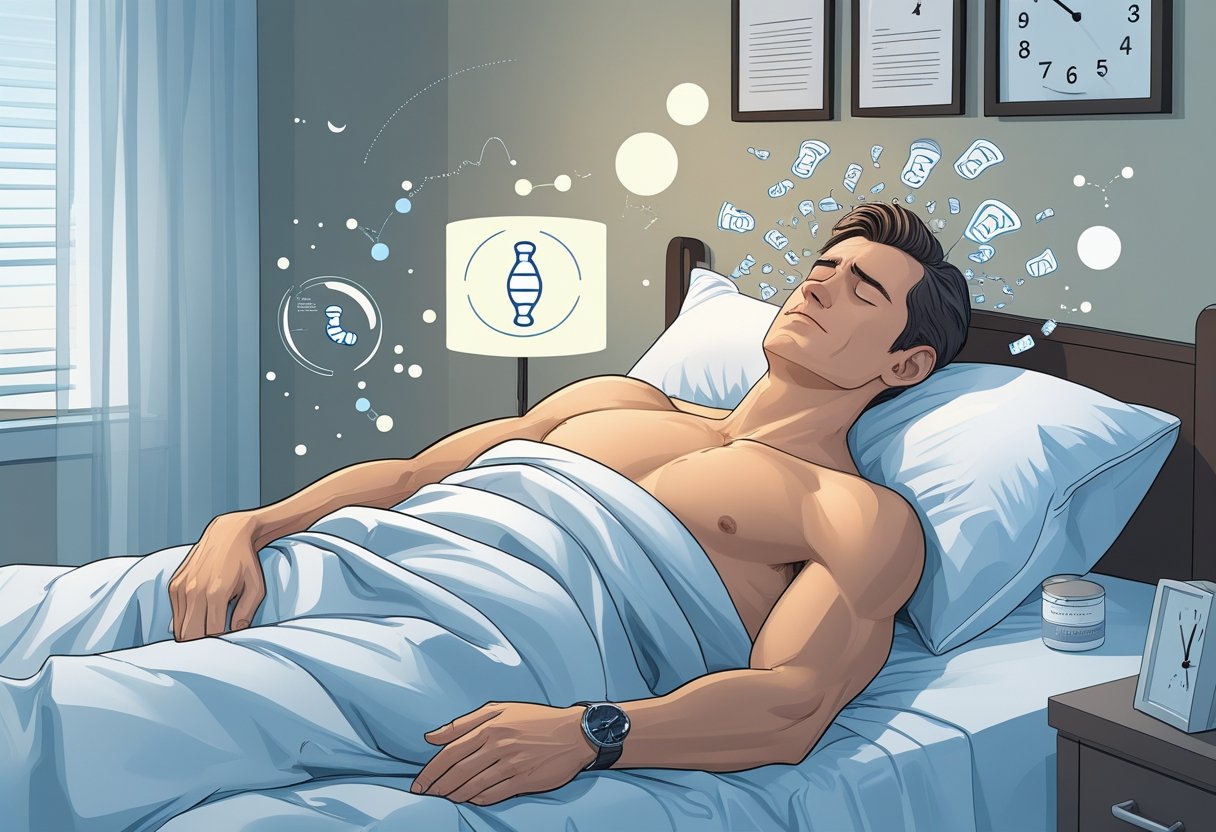
High Testosterone and Sleep Challenges
High testosterone levels can lead to several specific sleep problems. These include trouble falling asleep, feeling tired during the day despite restless nights, and increased irritability that disrupts rest. Understanding these effects clarifies the link between testosterone and overall sleep quality.
Insomnia from Elevated Testosterone
High testosterone levels can make it hard for some people to sleep. The hormone can give you extra energy and alertness, which keeps your body and mind from slowing down at night. Many people with higher levels find it tough to relax when it’s time for bed. It’s not just about falling asleep late. Often, it means waking up several times during the night. Too much stimulation from testosterone can disturb the normal sleep cycle and leave rest feeling broken.
Taking synthetic testosterone, especially in high doses, can make sleep problems worse. These treatments can push hormone levels higher than what the body usually manages. Sometimes lowering testosterone levels helps improve sleep, but when levels stay too high, the opposite usually happens.
Daytime Fatigue and Excess Testosterone
High testosterone can affect sleep in ways that make people feel drained during the day. While it can cause insomnia, the bigger problem is how it disrupts sleep. Waking up often at night or sleeping for fewer hours lowers sleep quality. As a result, many people end up asking why they feel so tired even though testosterone is supposed to boost energy. The answer is that it’s not the hormone itself making them tired, but the broken sleep that comes with it.
Testosterone may make someone more restless at night, but it also prevents the body from getting into the deep sleep stages that restore energy. So even if a person stays in bed long enough, they might still wake up feeling worn out.
Aggression and Sleep Disruption
When testosterone levels go up, people often feel more aggressive or irritable. These mood changes can make it harder to calm down at night and fall asleep. The stress that comes with these emotions raises certain hormones that disturb normal sleep signals. This can leave someone lying awake or waking up often, without getting real rest.
Too much aggression linked to high testosterone can create a cycle of tension and poor sleep. For many, dealing with the hormone imbalance is the only way to break that pattern.
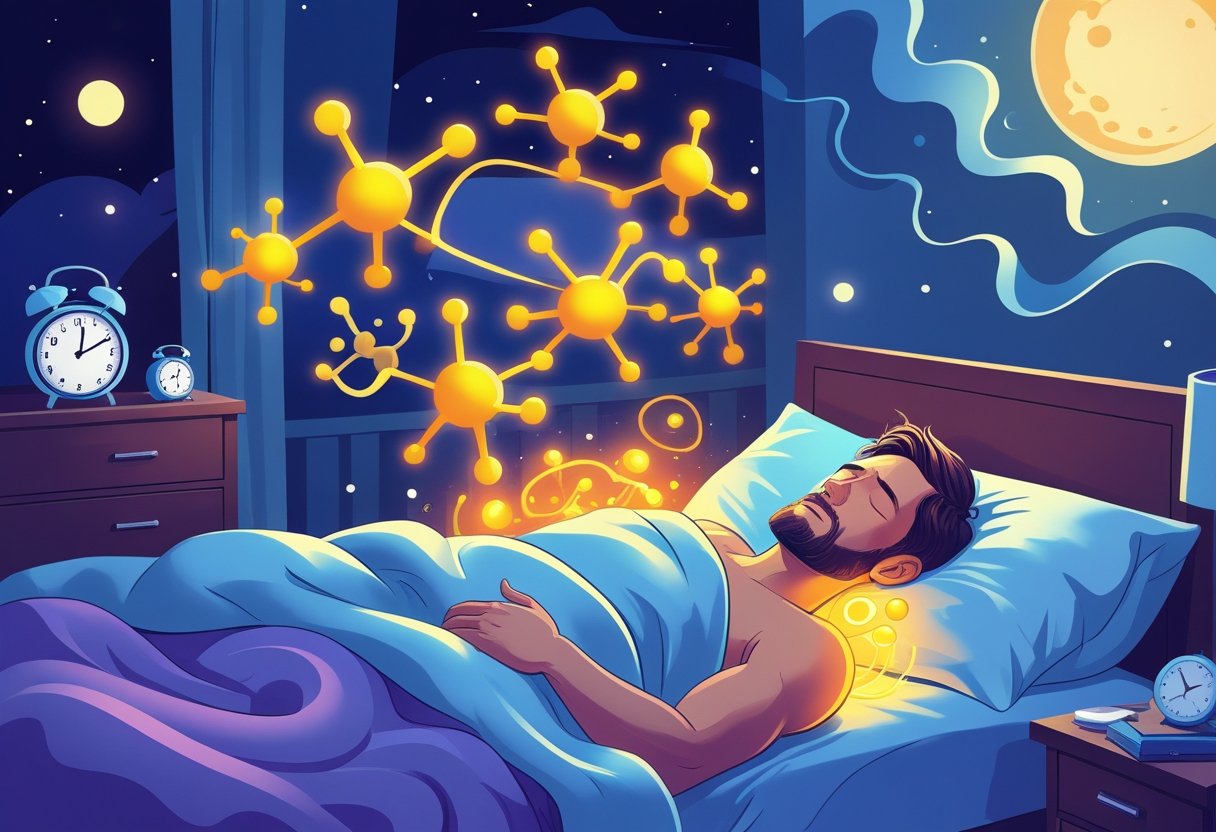
Testosterone Replacement Therapy (TRT) and Sleep
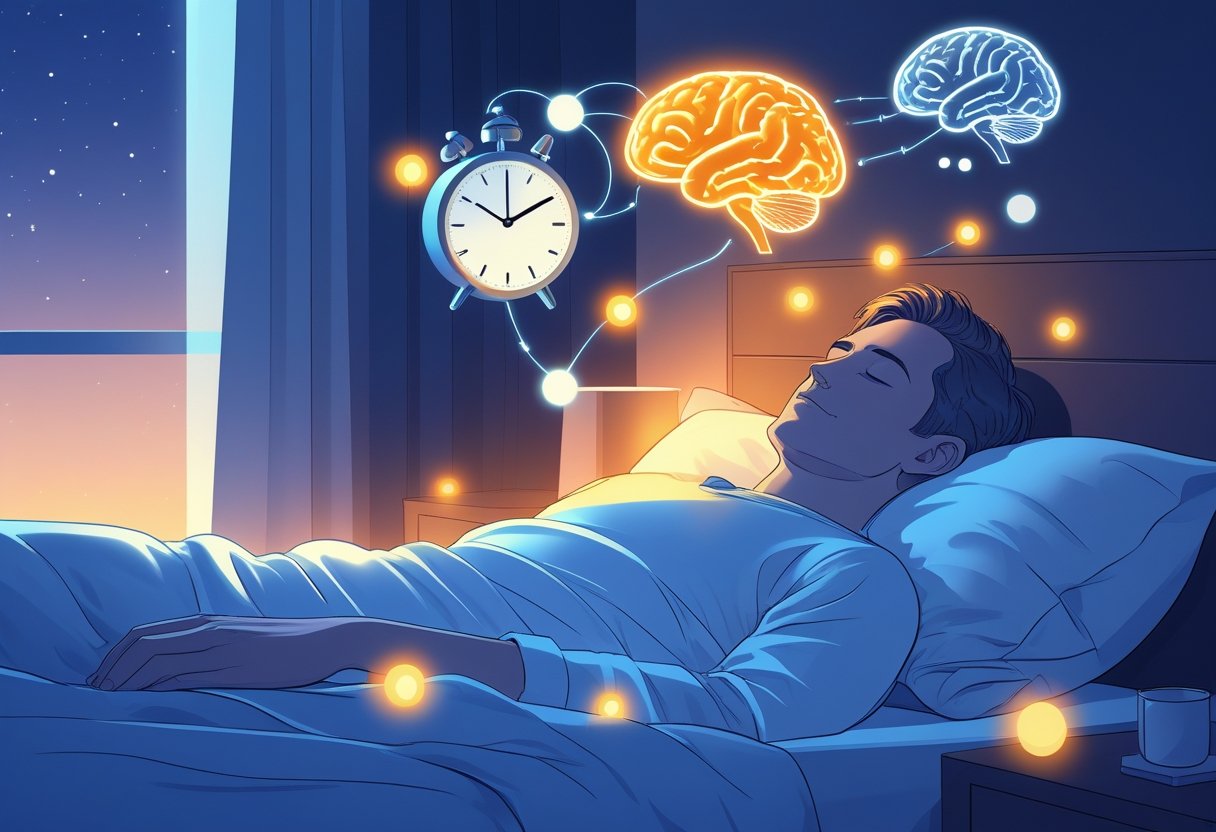
Testosterone Replacement Therapy (TRT) influences sleep in several ways, either positively or negatively, depending on the dose and person. It can enhance sleep quality in low-testosterone men, but it can also create issues like worsening sleep apnea or acute bouts of insomnia. Proper management should be exercised to weigh the benefits against the risks.
TRT Benefits and Possible Risks for Sleep
TRT can enhance deep sleep and alleviate fatigue in low-testosterone men. Greater testosterone levels typically result in improved mood and energy, which in turn also assist with healthier sleep habits. Low baseline men typically experience more restful sleep as soon as TRT is initiated.
Yet, excessive doses of testosterone can cause disturbances in sleep. Restlessness or insomnia is reported by some patients following injections. Side effects vary with the type of TRT, dose, and timing. Tracking symptoms following TRT initiation enables practitioners to assess whether changes are needed.
TRT and Sleep Apnea Issues
Testosterone therapy may worsen obstructive sleep apnea (OSA). TRT can affect airway muscles and alter the body’s response to low oxygen during sleep, which may lead to more apnea episodes, fragmented rest, and deeper oxygen drops.
Recommendations generally prohibit initiating TRT without initially treating OSA. Patients with untreated sleep apnea who initiate TRT must be closely monitored via sleep studies. When worsening apnea occurs, reduction or cessation of TRT may be required. CPAP continues to be necessary to treat OSA despite TRT.
Treatment of TRT-induced insomnia
Some guys develop insomnia following testosterone shots. Changes in hormones can affect the sleep-wake cycle in the brain, potentially disrupting falling and staying asleep. Allowing injection timing adjustments, including the avoidance of late-day administration, will often minimize disruptions.
Regular bedtime routines and other good sleep habits can also help alleviate TRT-induced insomnia. Recurring sleep disturbances need to be reported to a health professional. Other delivery methods like gels or patches may induce fewer sleep disturbances than injections.
Pairing medical supervision with sound sleep habits results in improved rest while on testosterone treatment. Men who are unable to sleep following a shot of testosterone ought to talk to their physician instead of discontinuing treatment by themselves.
Lifestyle Strategies for Optimizing Sleep and Testosterone
Testosterone optimization depends largely on proper sleep and healthy daily habits. Healthy sleep habits, diet, and regular exercise directly correlate with hormone equilibrium. Treatment of health concerns affecting sleep or hormone levels is essential for long-term change.
Improving Sleep Hygiene
Keeping a regular sleep schedule is important. Going to bed and waking up at the same time each day helps your body stay in rhythm. It also supports testosterone production during the deeper stages of sleep. Your bedroom setup matters too. A space that is cool, dark, and quiet makes it easier to rest well. Simple things like blackout curtains, earplugs, or white noise can block out distractions that interrupt sleep.
It also helps to avoid caffeine and screens at least an hour before bed. Both can interfere with melatonin, the hormone that signals your body to sleep. When melatonin works as it should, your body can time its natural testosterone boost more effectively.
Having a bedtime routine can make a difference as well. Reading, meditating, or doing other calming activities lowers stress and prepares your mind to rest. Good habits like these improve not just how much sleep you get, but also the quality, which is key for maintaining healthy testosterone levels.
Nutrition and Exercise Recommendations
Eating the right food helps keep your hormones balanced. Lean protein, good fats, and plenty of vegetables give your body what it needs to make testosterone and to rest well at night. Exercise also plays a big role. Moving your body most days, like going for a brisk walk or riding a bike for half an hour, can help raise testosterone and improve deep sleep. Just avoid working out too close to bedtime because it raises cortisol, which makes it harder to fall asleep.
Cutting back on alcohol is important too. Drinking too much not only messes with your sleep but also lowers testosterone. Staying hydrated and skipping heavy meals late at night can also make your sleep better.
When you put good food and regular exercise together, you support both your sleep and testosterone naturally without needing supplements.
Treating Underlying Health Conditions
Some health issues can interfere with sleep and lower testosterone. One example is sleep apnea. It breaks up rest, lowers hormone levels, and leaves people feeling tired all the time. Extra weight often plays a role too. Belly fat not only reduces testosterone but also makes sleep problems more likely. Losing weight with better eating habits and regular exercise can help improve both.
Stress is another factor. When stress stays high, the body produces more cortisol. This hormone works against testosterone and can also disrupt sleep. Simple routines like yoga, stretching, or slow breathing can make stress easier to manage.
Talking with a doctor is important. They can find out if a medical condition is causing the problem and suggest treatment. Getting the right care supports better hormone balance and healthier sleep over time.
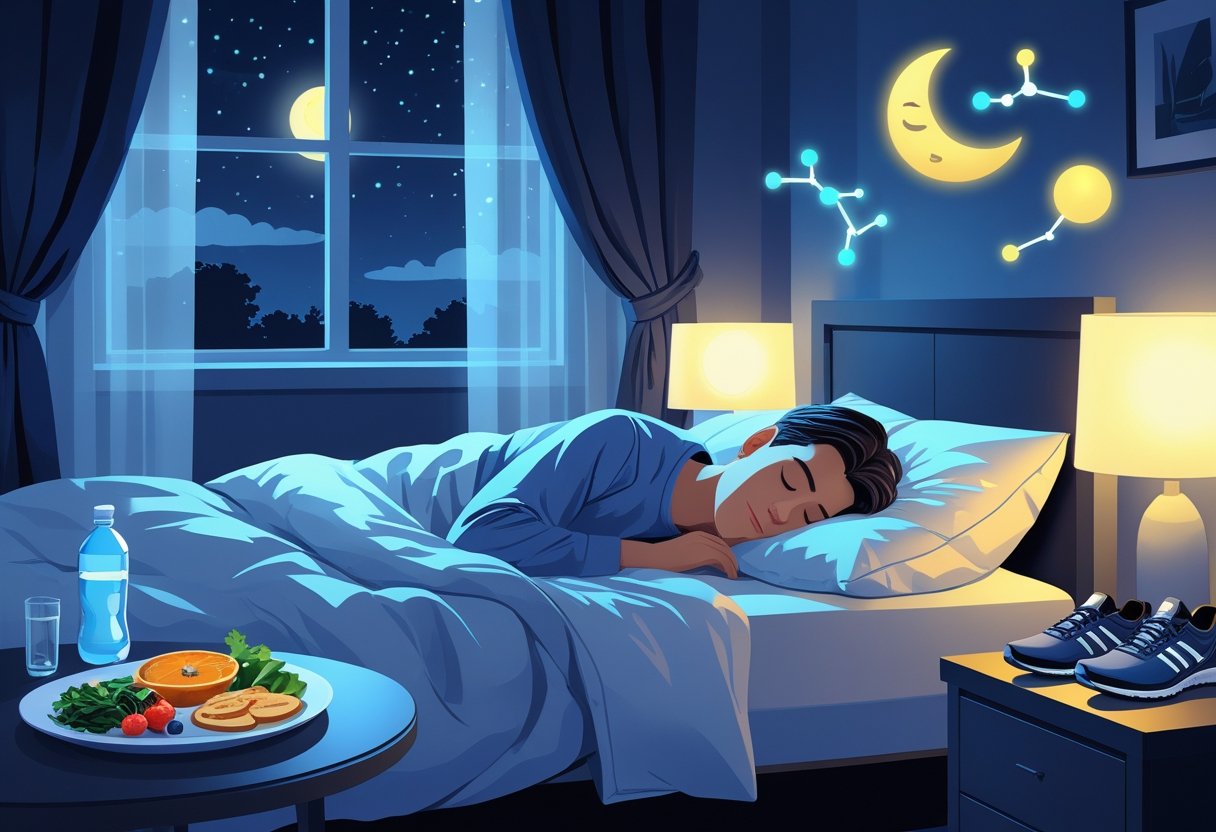
How the Right Mattress Supports Better Sleep and Healthy Testosterone Levels
Getting good sleep starts with the right mattress. A supportive one helps keep your spine straight and reduces tossing and turning. That means you’re more likely to stay asleep longer and wake up feeling rested. Deep sleep is also important for healthy testosterone levels.
When sleep gets disrupted, your body’s hormones can fall out of balance. Testosterone naturally rises and falls at night, and that cycle helps with muscle repair, energy, and overall health. If you keep waking up, that process gets interrupted.
That’s why it helps to look at certain features when choosing a mattress. Things like firmness, material, and pressure relief matter. A mattress that eases discomfort makes it less likely you’ll wake up in the middle of the night, which supports better sleep overall.
Important mattress features for improved sleep:
- Appropriate support to maintain a neutral spine
- Pressure relief on hips, shoulders, and joints
- Temperature control to avoid hot spots
These features provide an environment for comfortable sleep that enhances uninterrupted stages of sleep. Proper sleep enables testosterone levels to peak naturally, particularly during deep sleep.
Investment in a mattress that suits your body type and sleeping position enhances the quality of sleep. Improved sleep promotes hormone balance, such as testosterone, responsible for muscle development, mood, and sex drive. For anyone wanting a balanced feel with great support and pressure relief, Helix Dusk Luxe mattress is a consideration. It provides personalized comfort that can facilitate optimal conditions for deeper, healthier sleep.
The Helix Dusk Luxe mattress features medium-firm feel paired with luxury foam layers and zoned lumbar support, allowing it to be designed for various sleeping positions. It features a breathable Tencel cover and integrated cooling, which regulates temperature during sleep. All these aspects are designed to provide stability and consistency in comfort, the very essence of undisturbed sleep and maximum support for testosterone.

Frequently Asked Questions
Testosterone levels are closely tied to sleep patterns and overall sleep quality. Changes in how long and how well a person rests can directly influence hormone production. Certain stages of sleep and underlying conditions also affect testosterone in specific ways.

